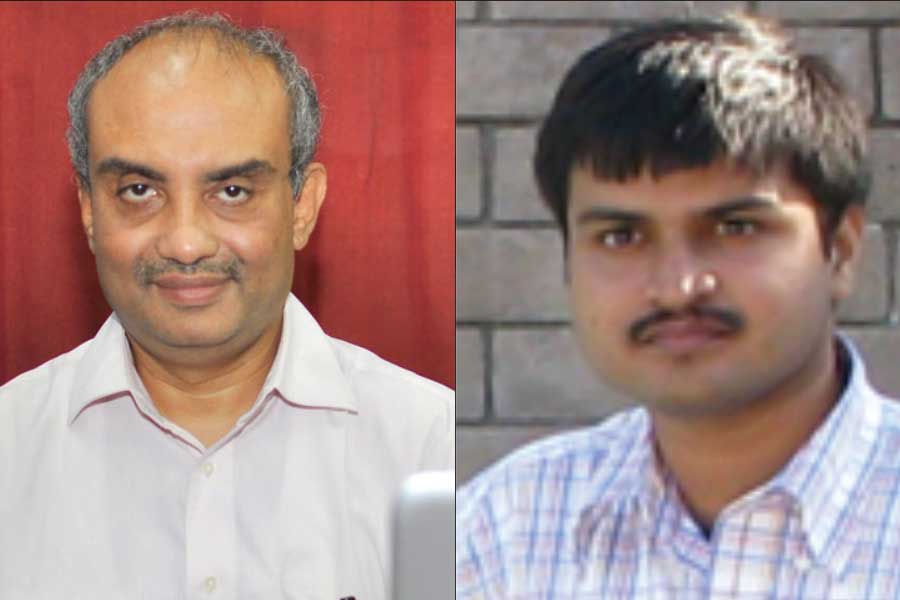Two Jadavpur University professors, involved in a soft-landing project for a planetary mission sponsored by ISRO, arranged a demonstration of soft landing using computer simulation for students here, a day after Chandrayaan-3’s successful touchdown on moon.
Professor of department of power engineering Amitava Gupta and associate professor of electronics and telecommunications Sayan Chatterjee were not in the core team of Chandrayaan-3 but works for ISRO-sponsored RESPOND project.
The main objective of the RESPOND programme is to establish strong links with premiere academic institutions in the country to carry out research and development projects which are of relevance to space and derive useful outputs of such R&D to support ISRO programmes.
Under RESPOND, projects in the advanced areas of relevance to space programme are encouraged to be taken up by premiere universities/academic institutions. ISRO helps these institutions to establish the necessary technical facilities and also provide fellowships to researchers to work on cutting edge research topics.
Gupta said while the real credit for the successful soft-landing of the lander goes to the ISRO, the RESPOND project partnering institutions like JU provided feedback from the simulator model using lab-scale components.
The simulation-based model took into account the gradual spiral descent during touchdown of the lander onto the moon’s surface to ensure it does not crash land.
"We did the designing and simulation part based on data. Once the designing part was done using lab scale components, we supplied the inputs to ISRO," Gupta added.
The research took into account how the lander moved, how it rotated, preventing it from suddenly gaining speed while landing due to gravitational pull, among others.
About the demonstration by him and Chatterjee before students at Aurobindo Bhavan a day after Chandrayaan-3’s success, Gupta said, "We showed the students how the soft landing on moon was possible. They arranged a live screening of our simulation and the interest was overwhelming." Gupta, who spoke online, and Chatterjee, who was physically present during the demonstration, said, "Please take note that simulating something on a computer and landing a craft on the moon are different ballgames." "This is a part of the RESPOND project sponsored by ISRO involving us and some other institutions and was not a direct part of Chandrayaan-3," he said.
In a giant leap for its space programme, India's Moon mission Chandrayaan-3 touched down on the lunar south pole on August 23, propelling the country to an exclusive club of four and making it the first country to land on the uncharted surface.
Except for the headline, this story has not been edited by The Telegraph Online staff and has been published from a syndicated feed.










